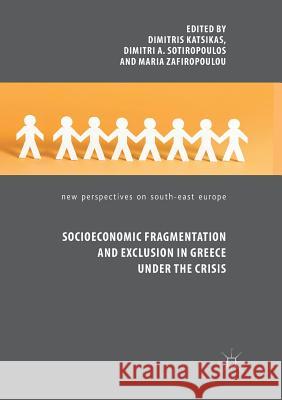Socioeconomic Fragmentation and Exclusion in Greece Under the Crisis » książka
topmenu
Socioeconomic Fragmentation and Exclusion in Greece Under the Crisis
ISBN-13: 9783030098506 / Angielski / Miękka / 2019 / 258 str.
Kategorie BISAC:
Wydawca:
Palgrave MacMillan
Seria wydawnicza:
Język:
Angielski
ISBN-13:
9783030098506
Rok wydania:
2019
Wydanie:
Softcover Repri
Ilość stron:
258
Waga:
0.33 kg
Wymiary:
21.01 x 14.81 x 1.47
Oprawa:
Miękka
Wolumenów:
01
Dodatkowe informacje:
Wydanie ilustrowane











